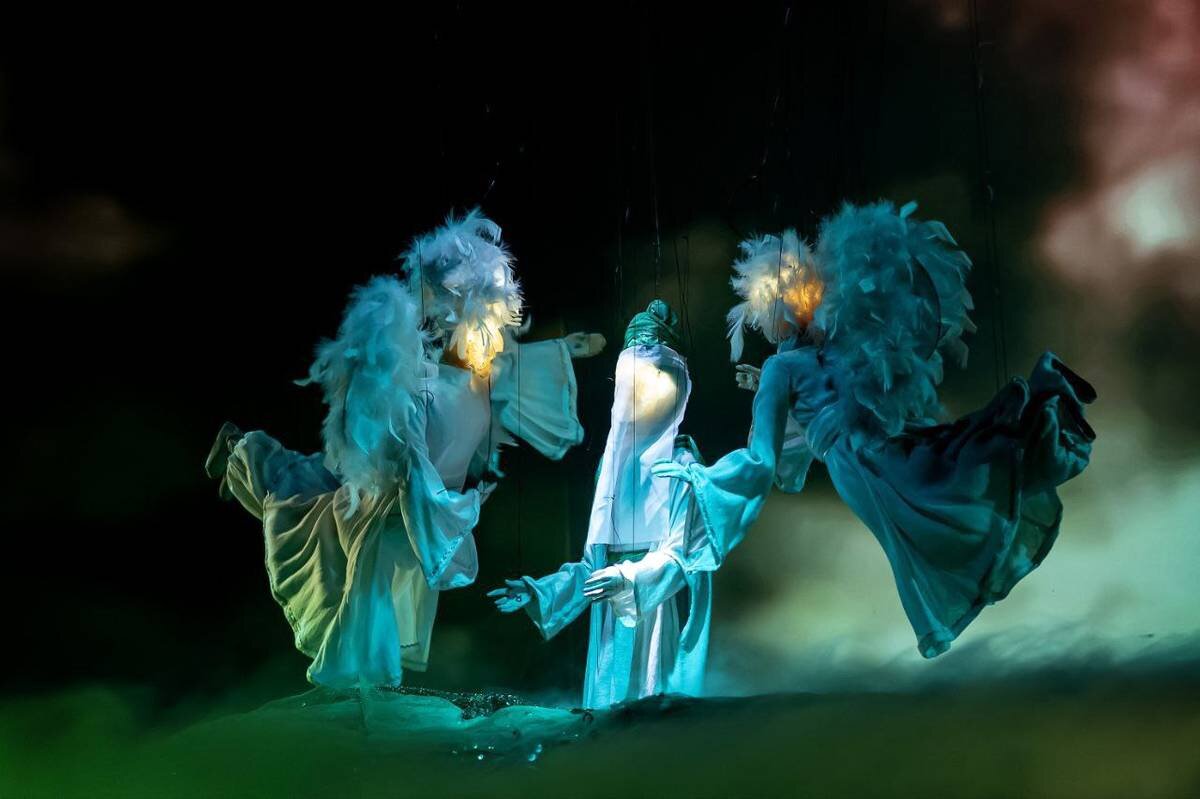Ashura opera puppet show returns to stage to commemorate Muharram

TEHRAN – Iranian director Behruz Gharibpour is restaging the Ashura opera puppet show with his Aran Theater Troupe at Tehran’s Ferdowsi Hall to mark the month of Muharram.
Beginning Sunday, the show, which is recognized as one of the most renowned and widely acclaimed productions by the Aran group, will be on stage until August 3, IRNA reported on Monday.
The opera is about the battle of Imam Hussein (AS) and his companions against the Umayyad dynasty during Ashura, the tenth day of the month of Muharram on the Islamic calendar.
The Ashura opera puppet show is a blend of music, puppetry, poetry and tazieh (Iranian passion play).
Despite more than 17 years since its debut, the production continues to attract audiences annually, and recently, the opera was performed at the Bolshoi Theatre in Moscow during the "Chekhov" Theatre Festival, the report added.
Created in 2008 under the artistic vision of Behrouz Gharibpour—who served as writer, researcher, designer, and director—the opera features musical composition by Behzad Abdi, with Vladimir Sirenko conducting the orchestra.
The production also involved the National Ukrainian Choir and Orchestra, in collaboration with members of the Tehran Symphony Choir, with mixing and mastering by Hamid Adab.
The cast includes prominent artists such as Mohammad Motamedi as Hurr, Mostafa Mahmoudi as Mohtasham Kashani, Mehdi Javar as Yazid, Farshad Fouladvand as Omar ibn Sa'd, Mohammad Reza Sadeqi as Shimr ibn Dhi 'l-Jawshan, Ali Khodai as Imam Hussein (AS), and Mehdi Emami as Abbas (AS) among others.
Puppeteers include Niloofar Sasani, Melika Mahdavizadeh, Mohammad Javad Amiri, Ghoncheh Nadgaran, Asal Sadr, Seyyed Ilya Qoreishi, Zahra Nasrollah, Seyyed Amir Hossein Mirhadi, Mohammad Hossein Heidari, Mohammad Hossein Mohebi, and Farzaneh Nazemi.
The Ferdowsi Hall is located on Shahriar St., off Hafez Ave, across from Vahdat Hall.
Ashura is one of the most dramatic and meaningful events in Islamic history. It commemorates the martyrdom of Imam Hussein (AS), the third Imam and the beloved grandson of Prophet Muhammad (PBUH), who was killed along with 72 of his loyal companions in the Battle of Karbala in 680 CE. This tragic event represents the ultimate stand against tyranny and injustice, as Imam Hussein (AS) and his small group of followers rose up against the oppressive Umayyad dynasty led by Yazid.
Imam Hussein (AS) refused to pledge allegiance to Yazid, whose rule he saw as corrupt and un-Islamic. Instead, he chose to stand for truth, justice, and righteousness, even though it meant sacrificing his life. His bravery and sacrifice became a symbol of resistance against oppression for generations to come.
Ashura holds deep cultural and religious significance, especially among Shia Muslims. Every year, on the 10th day of the Islamic month of Muharram, millions of people around the world commemorate this event with mourning ceremonies, processions, and reenactments of the battle. People wear black, recite elegies, and reflect on the values Imam Hussein (AS) stood for. In many cultures, food and water are distributed freely in remembrance of the thirst and suffering endured by Imam Hussein and his companions.
SAB/
Leave a Comment